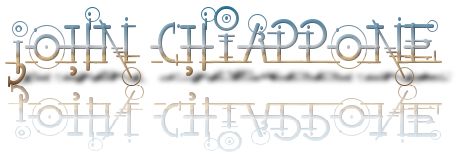|
PHILOSOPHY:
1. Faith in reason and an intelligible
Universe are necessary for philosophy.
2. Knowledge of revelation is known by
faith.
3. Knowledge of nature is known by
reason and experience.
4. Prior to experience the mind is a
blank slate. (Aristotle)
There is no innate
knowledge.
Our
idea of God is also not innate. (Descartes)
5. The senses are
passive; reason is active.
Through universal concepts reason organizes the
senses.
6. Universals are in God, other rational minds, and
particulars.
7. Prime matter can take any form. It's
pure potential.
Identical twins have
the same form; their matter is different.
This explains
how things change, yet have a continuity.
Water becomes
ice.
The
matter we experience is already entangled with form.
8. God is perfect, fully actualized,
simple, immaterial, infinite, timeless, unchanging,
and the cause of all things.
Matter
is potential. Form is actuality.
Things
are imperfect because they aren't fully actualized.
Only
one thing can be fully actualized.
9. God is all good since
God is all Being.
Evil
is the lack of being.
10. An action is good only if the object,
circumstances, and end are all good. For example:
Action - Willing all
your money to the church.
Object - To give your
fortune to a needy cause. (good)
Circumstance - You're
dying, and your wife needs the money to support the
kids. (bad)
End - Your intend to
buy your way into heaven. (bad)
11. Good acts are
rational, and in accord with the natural law;
Natural law, objective moral law, is part of our
nature.
Self
preservation is part of nature law.
Is the
preservation of offspring a natural law?
Civil laws are just
if they coincide with natural law.
Civil laws that
violate natural law are unjust.
Unjust
laws don't require obedience. (Civil Disobedience)
Should
there be victimless crimes? (See page 201.)
12. We have an obligation to pursue truth.
13. The ideal state is a democracy with one
ruler whose power is checked.
PROOFS FOR THE EXISTENCE OF GOD:
The question what is the cause of all
things presupposes that you cannot have a infinite
regress. Each proof agrees with that assumption, and
takes the form of Modus Pones:
|
If A then B
A Therefore B |
A > B
A / B |
THE COSMOLOGICAL ARGUMENTS:
FIRST ARGUMENT:
1. If change exists, then an unmoved
mover exists (God).
2. Change exists. /
Therefore an unmoved mover exists (God).
1. C > G
2. C / G
PREMISS ONE:
1. If the first premiss is false, an
infinite regress is possible.
2. It is not the case that an
infinite regress is possible. / Therefore
It is not the case
that first premiss is false.
1. ~P > I
2. ~I / P
3. ~~P 1,2 mp
4. P
3 dn
Would Aquinas agree that everything
has a cause?
THIRD ARGUMENT:
1. If contingent things exist, a
necessary Being exists (God).
2. Contingent things exist. /
Therefore a necessary Being exists.
1. C > N
2. C / N
PREMISS ONE:
The existence of a possible
contingent thing depends on some other thing. This
leads to an infinite regress, but an infinite
regress is impossible, so a necessarily existing
thing must exist, and we know this to be God.
1. If the first premiss is false,
then an infinite regress is possible.
2. It is not the case that an
infinite regress is possible. / Therefore
It is not the case
that first premiss is false.
1. ~P > I
2. ~I / P
3. ~~P 1,2 mp
4. P
3 dn
FOURTH ARGUMENT:
1. If degrees of
perfection exist, then ultimate perfection exists.
2. Degrees of
perfection exist. / Therefore ultimate perfection
exists.
PREMISS ONE:
The only way we could judge degrees
of being, value, or perfection is if ultimate Being,
Perfection, and Value served as a reference.
FIFTH ARGUMENT:
1. If the world has evidence of
design, then God exists.
2. The world has evidence of design.
/ Therefore God exists.
PREMISS ONE:
For Aquinas the world is a
teleological; it shows evidence of purpose and
design, and that constitutes evidence of God.
Ask yourself this question: What is
beauty doing here?
|
